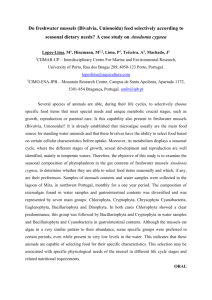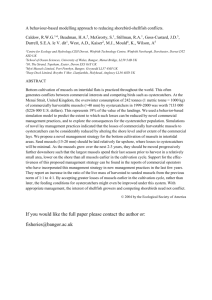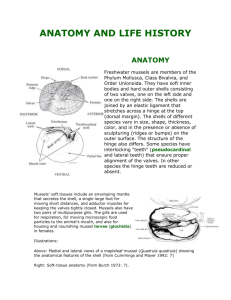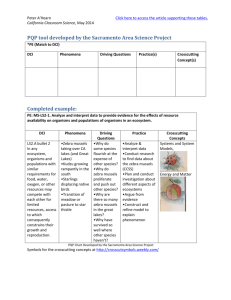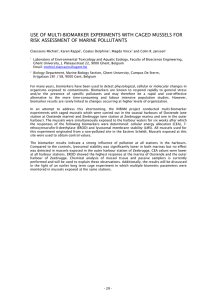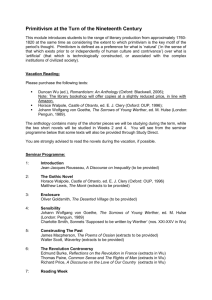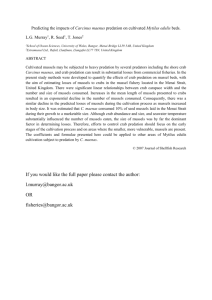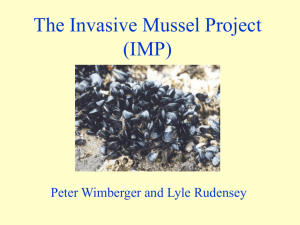This paper reports on the determination of toxin profile of mussels
advertisement
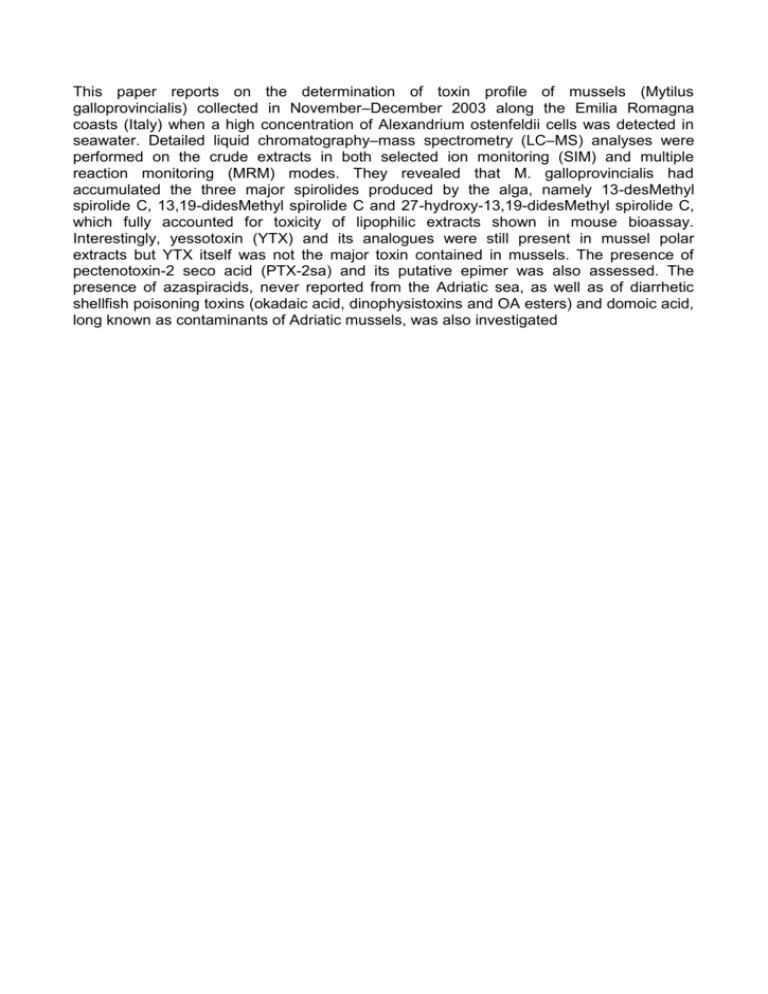
This paper reports on the determination of toxin profile of mussels (Mytilus galloprovincialis) collected in November–December 2003 along the Emilia Romagna coasts (Italy) when a high concentration of Alexandrium ostenfeldii cells was detected in seawater. Detailed liquid chromatography–mass spectrometry (LC–MS) analyses were performed on the crude extracts in both selected ion monitoring (SIM) and multiple reaction monitoring (MRM) modes. They revealed that M. galloprovincialis had accumulated the three major spirolides produced by the alga, namely 13-desMethyl spirolide C, 13,19-didesMethyl spirolide C and 27-hydroxy-13,19-didesMethyl spirolide C, which fully accounted for toxicity of lipophilic extracts shown in mouse bioassay. Interestingly, yessotoxin (YTX) and its analogues were still present in mussel polar extracts but YTX itself was not the major toxin contained in mussels. The presence of pectenotoxin-2 seco acid (PTX-2sa) and its putative epimer was also assessed. The presence of azaspiracids, never reported from the Adriatic sea, as well as of diarrhetic shellfish poisoning toxins (okadaic acid, dinophysistoxins and OA esters) and domoic acid, long known as contaminants of Adriatic mussels, was also investigated
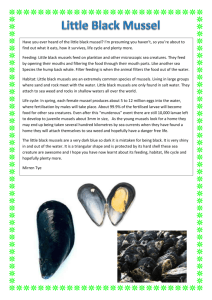
![Literature and Society [DOCX 15.54KB]](http://s2.studylib.net/store/data/015093858_1-779d97e110763e279b613237d6ea7b53-300x300.png)
